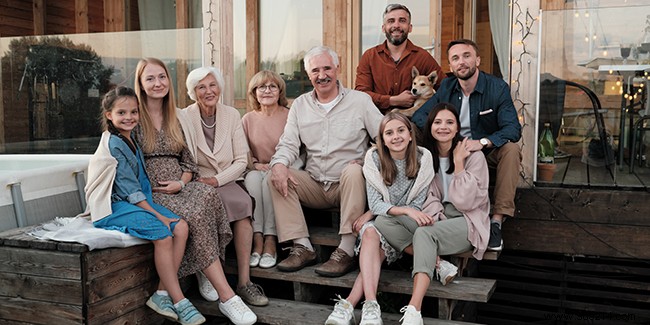
According to the latest figures published by INSEE, blended families represent 9% of the population, or 723,000 families. 11% of children, or 1.5 million, live in families made up of a couple and at least one child from a previous union. Half of blended families have no children of the couple themselves, but only children from previous unions. A situation that raises many questions at the time of the succession of these types of families. How to ensure that the children who are not from the couple thus reformed are inherited? Adopting them for this purpose in particular is possible under certain conditions, in particular that the blended couple is married and that the adopted child gives his consent if he is over 13 years old. What are the different forms of adoption? What are their consequences in terms of inheritance?
We speak of simple adoption to designate the fact of creating a new family relationship between the adopter and the adopted without the relationship of the latter with his family of origin being removed. Thus, the child of a blended family adopted by his step-parent in this way keeps the link with these two families.
Simple adoption is the solution most often chosen by blended families made up of children from previous unions to "formalize" relationships that have become strong between step-parents and step-children. But also to allow these children to inherit from their step-parents. Simple adoption is only possible if the blended couple is married.
In practice, the simple adoption of the children of one's spouse is only possible if the blended couple is married. If the children of the spouse are minors, parental authority de facto rests with the adopter. However, it can be exercised jointly by the adopting step-parent and the biological parent of the child if a joint declaration to this effect is filed with the court.
The adopter must be at least 10 years older than the child of his adopted spouse and the spouse must give his consent before a notary.
In the context of a recomposed family, the child who has been the subject of a simple adoption by his step-parent can inherit from both families since the link with his family of origin is not broken. He thus retains his inheritance rights in the latter.
The child of the adopted spouse benefits from the same inheritance rights as the children of the step-parent who adopted him. He thus becomes what is called a reserved heir vis-à-vis his adoptive step-parent, that is to say the one to whom a part of the inheritance, called hereditary reserve, belongs by right according to the French law. On the other hand, he does not have this status in relation to his adoptive grandparents, who therefore have the possibility of disinheriting him.
In the event of inheritance, a child who has been the subject of a simple adoption by his step-parent may benefit from transfer duties, i.e. the tax due to taxes, free of charge when he declares his estate to the tax authorities, but certain conditions must be met. If he is a minor at the time of the adopter's death, or, if he is an adult, if he has received uninterrupted care from the adopter for 5 years during his minority or 10 years during his minority and its majority. Otherwise, the inheritance tax applied is 60%.
Full adoption is another way for blended families with children from a previous union to be able to make their spouse's children their heirs.
However, full adoption is more difficult to set up than simple adoption because it meets much stricter conditions because it is intended to replace one of the biological parents.
First, the blended couple must be married if the full adoption concerns children of their spouse under the age of 15, an age above which it is no longer possible to have recourse to an adoption. plenary. In addition, they must not have been recognized by their other parent.
Full adoption of the children of one's spouse is also possible only if the parent other than the spouse has had parental authority completely withdrawn or if the other parent is deceased and has not left any ascendants. in the first degree (grandparents) or when they have clearly lost interest in the child.
On the other hand, as for simple adoption, the adopter must be at least 10 years older than the adopted child and his spouse must give his consent before a notary.
In the context of the full adoption of children of one's spouse, the latter automatically inherit, as forced heirs, from their adoptive step-parent, i.e. all of the deceased's property returns, once the share has been allocated to the surviving spouse.
Unlike simple adoption, adopted children of the spouse are no longer the heirs of their family of origin.
In tax matters, the child of the spouse adopted by means of a full adoption benefits from the same deductions and more favorable rates applied with regard to inheritance rights as if he were the biological child of the deceased step-parent.